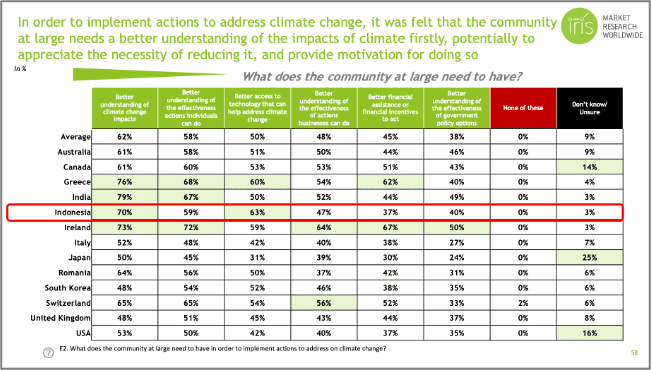Summary:
Concern about climate change and its impacts is high in Indonesia, with concern for these issues higher than the global average. However, overall awareness and undrstanding of the current outlook and solutions is lower for Indonesians; according to the recent International Research Institute Network (Iris) Global Climate Change Survey.
In the survey carried out by Illuminate Asia as the Indonesian representative of Iris, more than half (54%) Indonesians claim to be very worried about the issue of climate change. However, they seem to be overly optimistic as to the reversability of the problem - most are unaware that even under the best-case scenario, global temperatures (70% unaware) and sea levels (77% unaware) will continue to increase until at least mid-century.
Survey Background:
Illuminate Asia if a member of the International Research Institutes (Iris) network – a global network of independent research agencies covering 33 countries. In 2021, Iris conducted a Global Climate Change Survey – across 13 countries, including Indonesia. The survey was conducted globally between 10th September and 20th October, 2021.
Survey results:
A). Concern over climate change: Almost all Indonesians (95%) claim to be concerned about climate change, with more than half (52%) very worried about the issue. This concern is one of the highest across markets, and considerably higher than the global average (44% very worried). In fact, only Italy has a higher level of concern amongst the 13 countries.
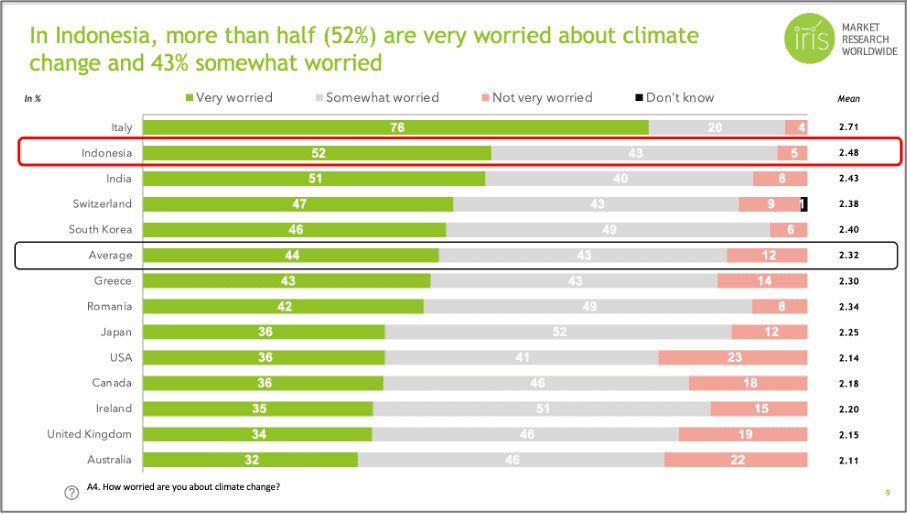
In fact, Indonesians are more likely to feel that climate change will significantly impact most of the factors surveyed. The top 3 factors are weather and climate patterns (82% major impact compared to 71% global average), natural ecosystems (79% compared to 65% global average), direct effect on humans (75% compared to 47% global average). Meanwhile the bottom 3 factors are: affecting the industry they work in (36%), local community (32%), and their chosen career (28%).
Of particular concern is how climate change will impact future generations, with almost 8 in 10 (78%) believing climate change will harm future generations a great deal – much higher than the global average of 68%.
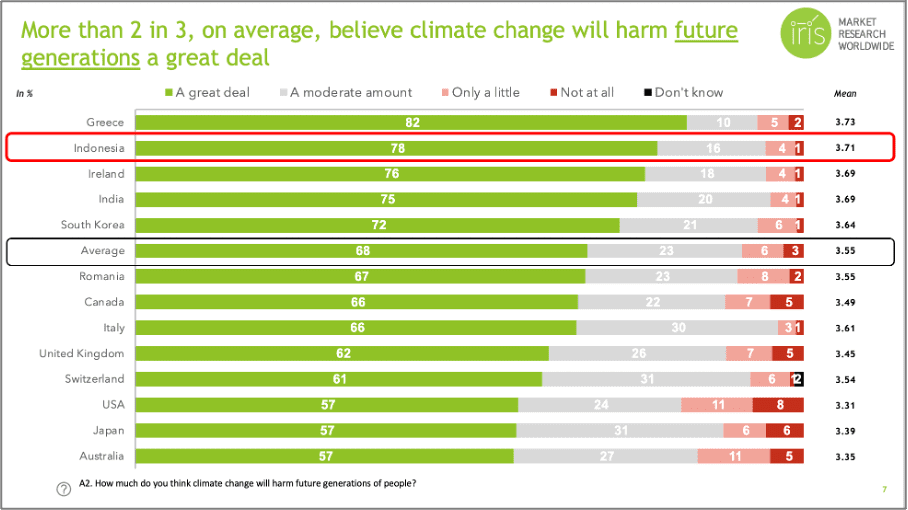
B). Understanding and solutions to climate change: Indonesians are fairly optimistic as to the reversability of climate change. For example, more than half (54%) believe that if the world stopped emitting greenhouse gases today, the rise in global air temperatures would begin to flatten within a few years or within a decade. This is in comparision with the global average, where 26% believe this would happen within the next decade, 24% by mid-century, and a further 20% are unsure.
Similarily, when it ocmes to rise in sea levels, almost 6 in 10 (59%) Indonesians believe that sea level rises would flatten in the next few years or next decade, if the world stopped emitting greenhouse gases today. This is in comparision with the global average, where 24% believe this would happen within the next decade, 24% by mid-century, and a further 22% are unsure.
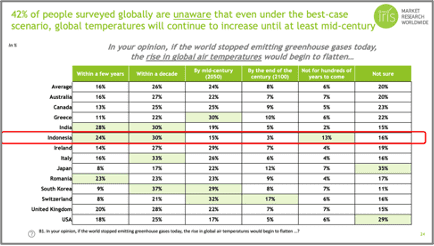
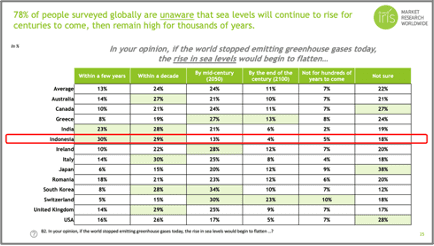
Most people globally, and also including Indonesia, recognised the need for increased knowledge around action on climate change. The area where people surveyed feel the most improvement is needed is around the impact of climate change on thje environmental risk of climate change (67% of Indonesians want more information), the impact on natural ecosystems (55%), health risks (53%) and food and water supplies (52%).
The community at large is thought to need better undrsandnig on climate change impacts (70% Indonesians, 62% global average), better access to technology that can help address climate change (63% Indonesians, 50% global average) and better understanding of the effectiveness actions individuals can do (59% Indonesians, 58% global average).
